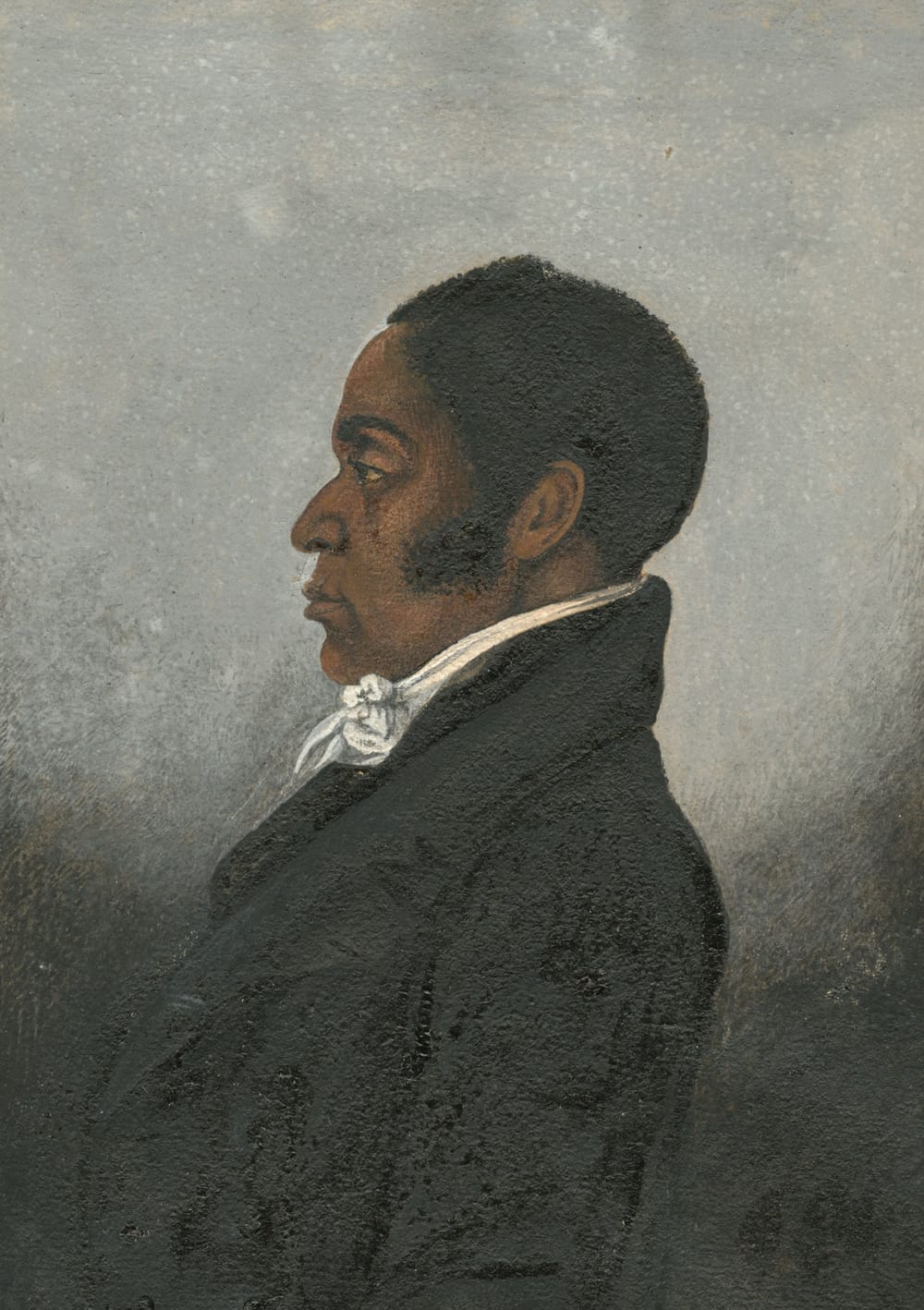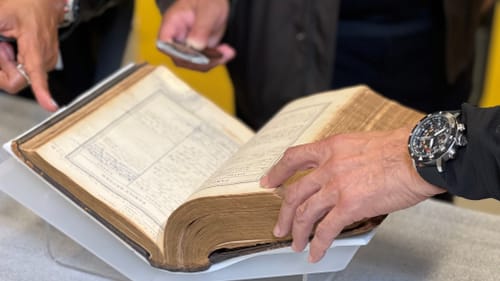Stay in the Loop
BSR publishes on a weekly schedule, with an email newsletter every Wednesday and Thursday morning. There’s no paywall, and subscribing is always free.
Three generations of seeking justice
Museum of the American Revolution presents Black Founders: The Forten Family of Philadelphia

Black Founders: The Forten Family of Philadelphia, on view at the Museum of the American Revolution (MoAR) through November 2023, explores the extraordinary life of Black Philadelphian James Forten and the legacy of his remarkable family over 100 years, from the Revolutionary Era through the Civil War and Reconstruction.
The exhibit offers a unique and sweepingly cinematic perspective of this country's founding, as witnessed by James Forten. He was born free, just a block away from where this museum now stands, and at age 10, he heard the words of the Declaration of Independence as it was read aloud for the first time on July 8, 1776. Just four years later, he set out on a privateer ship to fight for American independence in the Revolutionary War. He was captured and held as a prisoner of war for seven months before returning to Philadelphia. Later, he became a successful business owner who helped the city’s flagging sail-making industry with his innovative construction techniques. He was a philanthropist and abolitionist and raised a large family with his wife Charlotte Vandine Forten.
The rollercoaster of history
Possibly the most valuable aspect of this story is the chance it offers to see American history for what it is, and recontextualize the present accordingly.
“We like to show that American history is not just this upward trajectory, getting better every decade. This is a rollercoaster,” says MoAR curator of exhibitions Matthew Skic. The Fortens were fighting some of the same battles we’re still fighting today. Skic notes that the Fortens were committed to America’s founding ideals, working not just to preserve them, “but advance them, and not just for the US, but [for] the world.”
Generations of Fortens were key players in the abolitionist movement, and helped to start the American Anti-Slavery Society and the Philadelphia Female Anti-Slavery Society in 1833. They also took an active role in defending voting rights and civil liberties for African Americans throughout the century that this show spotlights.

We can learn a modern lesson from the Forten family’s actions. James Forten had never had the experience of being treated like property. He was a war veteran. Thanks to his talents and ingenuity, he had a successful business. He could have been complacent about Black Americans’ need for freedom and passed this attitude on to his descendants, but what he did was far more extraordinary and worthy of emulation.
An interactive approach
More than 100 historical artifacts fill the main exhibit, including works of art, textiles, and documents from nearly 40 lenders and the museum’s own collection. Some of these items are on display for the very first time, including the Forten family Bible, a “living artifact” with births, deaths, and marriages recorded in its pages. Other artifacts include a table once owned by James Forten on loan from a step-descendent and his wife, a silk flag for the 127th Regiment of United States Colored Troops, and the only surviving photograph of Forten’s wife Charlotte both on loan from Howard University.
This exhibit and its wide array of activities and learning experiences take full advantage of a museum environment built for tactile learning. Visitors can step inside a partial recreation of Forten’s sail workshop and interact with replicas of his tools. Upstairs, visitors can board a scale model of the Royal Louis, the privateer ship Forten served aboard, and try on clothing similar to what the sailors wore in 1781.

The exhibit itself is not the only interactive element of the Black Founders experience. Director of education and community development Adrienne Whaley mentions workshops with ties to the lives of Forten women, including a Ditty Bag workshop (make your own canvas tote like the ones carried by Revolution-era sailors) and a sampler workshop (in three online sessions, learn 18th-century-style embroidery).
“It shows these women are learning literacy skills with poetry, prose, and art,” Whaley says of samplers by James and Charlotte’s daughters, on display in the exhibition.
Museum visitors can experience the exhibition in several ways, including with a handheld audio tour. Group tours are available, and visitors can enjoy a walking tour of key Forten landmarks, like his family’s home near Fourth and Lombard Streets. And this spring, the MoAR will launch a 360-degree virtual tour of the 5,000-square-foot exhibition that will be accessible all over the world for free.
An enduring perspective
Black Americans always feel a tension whenever we look back at the history of the United States—in fact, the whole Western world. So many principled, idealistic revolutionaries have been cut down in their prime, beating their fists against the Goliaths of chattel slavery, Jim Crow, and the contemporary scourge of state violence and systemic inequity. We venerate their sacrifice, but there is a feeling of inevitability to all of these figures burning so brightly, but briefly. The Fortens show us another perspective. They passed down an ideal of liberty, community, and family over the three generations featured in this exhibition, and beyond. They created and preserved their traditions, told and passed down their stories, and all Americans can learn a lot from this family today.
Above: A portrait of James Forten. (Image courtesy of the collection of the Historical Society of Pennsylvania.)
What, When, Where
Black Founders: The Forten Family of Philadelphia. Through November 26, 2023, at the Museum of the American Revolution, 101 S 3rd Street, Philadelphia. (215) 253-6731 or amrevmuseum.org.
Accessibility
Masks are not required in the museum.
The MoAR is an ADA-compliant venue. For more info, visit the museum’s accessibility page.
Sign up for our newsletter
All of the week's new articles, all in one place. Sign up for the free weekly BSR newsletters, and don't miss a conversation.

 Crystal Sparrow
Crystal Sparrow